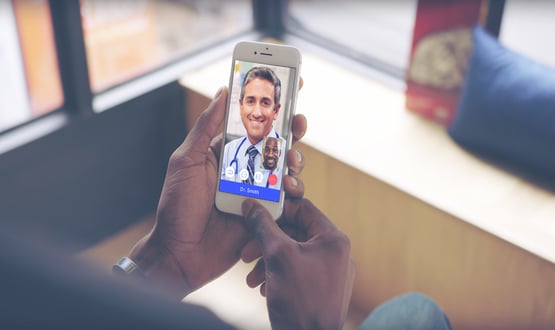Digital provides ‘appropriate care’ to prevent avoidable hospital admissions

Access to online GP appointments could prevent avoidable hospital admissions and ease pressure on overburdened local GPs, digital providers have said in response to a new report.
The report, from data and insights provider Dr Foster, found avoidable emergency admissions in the UK have risen 9% between April 2013 and March 2018 – and currently make up about 23% of all hospital admissions.
“This increase is alarmingly high considering many of these admissions can be prevented through effective primary and community care,” the report said.
It recommended that commissioners use data to better understand the health of their population when building integrated care systems, do more to identify high-risk patients earlier and assess whether current resources are enough to address health inequalities.
In response Royal College of GPs chair, Professor Helen Stokes-Lampard, said better integrated services were needed so patients always have access to a GP.
“Patients should always be able to see a GP when they need to, either through routine GP services, or GP out of hours services,” she said.
“What we need to see is more integration between the two, a more collaborative approach to funding solutions and more public awareness campaigns about the appropriate urgent care services available, so that patients know where to turn when they are sick.”
Tom Binstead, director of strategy and analytics at Dr Foster, told Digital Health access to digital services would help bridge that gap.
“Our report clearly shows that access to primary care needs to be addressed and one of the ways of doing this would be to improve timely access to GPs,” he said.
“The NHS Long Term Plan and the Interim NHS People Plan both put emphasis on digital technology as a way of achieving this better access.”
Unsurprisingly, digital first providers agree.
Dr Sarah Jarvis, clinical director at Patient, said waiting times for GP appointments are at an all time high, with 2.8 million patients in England waiting over 3 weeks for an appointment every month.
On top of that, some 18 million appointments each year are taken up by people who could see a pharmacist for their condition – and a further 2.1 million visits to A&E could also be dealt with by a pharmacist.
“Digital tools offer a host of ways to help patients access the most appropriate care,” she told Digital Health.
“These freed up appointments can be used to provide more time to complex patients and to see people whose condition would worsen if not dealt with urgently.
“By seeing patients and intervening early, we know it is often possible to prevent deterioration leading to hospital admissions. And by providing a single portal for all patients’ medical needs, patients feel more empowered and find it easier to access health services.”
Dr Dan Bunstone, chief medical cfficer at Push Doctor, said digital provides an opportunity to work with NHS GPs to enhance the care they are able to give.
“For us it is about supporting NHS GP practices to provide increased choice and accessibility to their patients, while helping to lessen the strain on GPs and practice staff,” he said.
He added may online GP appointments do not result in further follow-up, reducing the burden on other services like A&E.
A spokesman for Babylon, which powers the app GP at Hand, said: “This [digital consultation] means people can quickly get a GP appointment when needed, patients are more likely to seek help, issues can be diagnosed more quickly and treatments can be started before they progress to something more serious.
“Digital-first services will not suit everyone. There are people who cannot use the technology or do not want to use it – and they are just as important. The aim should not be to make everyone have to use digital-first, it should be that it’s available to all who want it – and the service needs to be good enough that people want to use it.
“There is also the clear distinction that digital-first does not mean digital only, there will always be a need for face to face consultations and physical examinations.”
Both the NHS Long Term Plan and new GP contract placed emphasis on digital first care becoming mainstream in the future.
The long term plan stated in 10 years’ time, the “NHS [in England] will offer a ‘digital first’ option for most, allowing for longer and richer face-to-face consultations with clinicians where patients want or need it”.
For primary care, the milestone states that by 2023/24, every patient in England will be able to access a digital first primary care offer.
In June NHS England launched a consultation on digital first primary care, which could change the rules to out-of-area registrations to address funding inequalities between local GP practices and digital providers.




